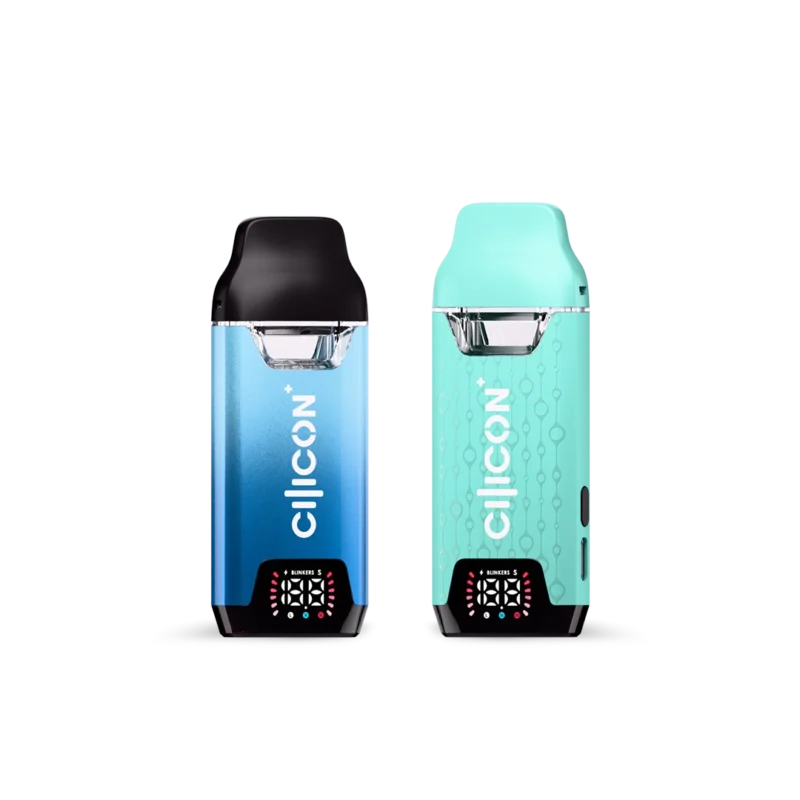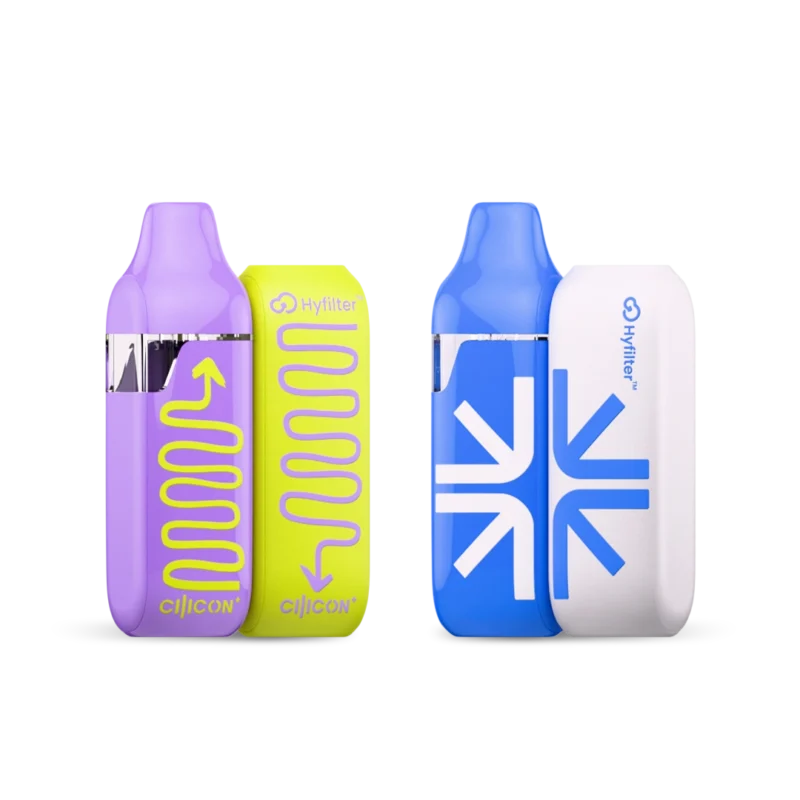-
New

GEMINO
1.0mL/2.0mL
Learn More
-
New

TYNIE
1.0mL/2.0mL
Learn More
-
New

HYCLICK
1.0mL/2.0mL
Learn More
-
New

WATCHA
1.0mL/2.0mL
Learn More
-
Best Seller
SOLO 1
0.5mL/1.0mL
Learn More
-
DELI Nova3
1.0mL/2.0mL
Learn More
-
EDGE Box6
2.0mL
Learn More
-
HYFREE
2.0mL
Learn More
-
ELEV Box8 Pro
2.0mL
Learn More
-
DELI Duo2
2.0mL
Learn More
-
DELI Nova2 & Pro
1.0mL/2.0mL
Learn More
-
POPSI
3.0mL
Learn More
-
EZI
1.0mL/2.0mL
Learn More
-
DELI Nova1
1.0mL/2.0mL
Learn More
-
EDGY
1.0mL
Learn More
-
EDGE Box5
2.0mL/3.0mL
Learn More
-
EDGE Box4
1.0mL/2.0mL
Learn More
-
DELI Box3 Pro
1.0mL/2.0mL
Learn More
-
POCKIE
1.0mL
Learn More
-
EDGE 3
2.0mL
Learn More
-
DELI 1 Pro
1.0mL/2.0mL
Learn More
-
DELI 1
0.5mL/1.0mL
Learn More
-
EDGE Air1
1.0mL/2.0mL
Learn More
-
ELEVEN
2.0mL/3.0mL
Learn More
-
DELI Box1 Pro
1.0mL/2.0mL
Learn More
-
DELI DUO1
1.0mL/2.0mL
Learn More
-
DELI Box2
1.0mL/2.0mL
Learn More
-
EDGE Box3
3.0mL/4.0mL
Learn More
-
FLARE Box2
5.0mL
Learn More
-
DELI Box1
1.0mL/2.0mL
Learn More
-
TOCO
5.0mL/6.0mL
Learn More
-
ELEV Box8
1.0mL/2.0mL
Learn More
-
ELEV Box9
3.0mL/4.0mL
Learn More
-
FLARE Bar1
0.5mL/1.0mL
Learn More
-
ELEV Box7
3.0mL
Learn More
-
ELEV Box6
1.0mL/2.0mL
Learn More
-
ELEV Box5
4.0mL/5.0mL
Learn More
-
EDGE Box2
1.0mL/2.0mL
Learn More
-
EDGE 2
1.0mL/2.0mL
Learn More
-
SOLO 2
2.0mL/3.0mL
Learn More
-
FLARE 1
1.0mL
Learn More
-
ELEV Bar1
1.0mL/2.0mL
Learn More
-
ELEV Air1
1.0mL
Learn More
-
Vaping has emerged as a popular alternative to traditional smoking methods, allowing users to inhale vaporized oil or compounds. Among the various substances used in vaping devices, cannabis-derived products like THC (tetrahydrocannabinol) have gained significant traction. THC vape pens, in particular, have become a discreet and convenient way for cannabis enthusiasts to consume their desired product.
The rise of THC vape pens can be attributed to several factors, including the growing legalization and decriminalization of cannabis across various regions, the demand for more discreet consumption methods, and the perception of vaping as a potentially safer alternative to smoking. These compact and portable devices have revolutionized the way individuals interact with cannabis, offering a new experience that caters to modern lifestyles.
As the popularity of THC vape continues to soar, it becomes increasingly important to understand their mechanics, potential effects, and associated risks. This comprehensive guide aims to provide an in-depth exploration of weed vape pens, shedding light on their functionality, types, potency levels, legal status, and best practices for responsible use.
What are THC Vape Pens?
THC vape pens, also known as cannabis vape pens, weed vaporizers, or weed vape pens, are compact devices designed specifically for vaporizing and inhaling THC, the primary psychoactive compound found in cannabis. These pens consist of several key components that work together to transform cannabis concentrates or oils into vapor.
At their core, THC vape pens feature a battery-powered heating element, often called an atomizer. This atomizer is responsible for heating the THC-containing liquid or THC oil, transforming it into a vapor that can be inhaled. The cannabis concentrate or THC oil is typically housed in a cartridge or tank that connects to the heating element.
Unlike traditional e-cigarettes, which are designed to vaporize nicotine-containing e-liquids, weed vape pens are specifically engineered to handle the unique properties of cannabis extracts. These extracts can vary in consistency, from thin oils to thick, wax-like concentrates, requiring different atomizer designs and heating temperatures.
One of the key advantages of THC vape pens is their discreet and portable nature. Many of these devices are designed to resemble standard vape pens or even everyday items like pens or USB drives, allowing for inconspicuous use. Additionally, weed vape pens produce significantly less odor compared to traditional cannabis smoking methods, making them a more discreet option for consumption.
How Do THC Vape Pen Work?
THC vape pen operates on the principle of vaporization, which is the process of heating a substance to the point where it transitions from a solid or liquid state into a vapor without undergoing combustion. This process allows users to inhale the active compounds, such as THC, without exposing themselves to the harmful byproducts of combustion.
The heating mechanism within a THC vape pen is typically powered by a rechargeable lithium-ion battery. When activated, the battery supplies power to the atomizer, a critical component that houses the heating coil or element. This heating element is designed to reach specific temperatures suitable for vaporizing the cannabis concentrate or THC oil contained within the THC cartridge or tank.
As the heating element reaches the desired temperature, it comes into direct contact with the cannabis concentrate or THC oil, causing the compounds to vaporize. The resulting vapor is then inhaled through the mouthpiece of the vape pen, allowing the user to experience the effects of the vaporized THC and other cannabinoids.
The vaporization process in THC vape pens is generally considered more efficient than traditional smoking methods, as it allows for better control over the temperature and minimizes the degradation of active compounds that can occur during combustion. Additionally, vaporization produces significantly less odor and residue compared to smoking, contributing to a more discreet and potentially less harmful experience.
It’s important to note that the effectiveness and quality of the vaporization process can vary depending on the design and quality of the THC vape pen, as well as the potency and composition of the cannabis concentrate or oil being used.
Types of THC Vape Pens
THC vape pens come in various forms, each designed to cater to different user preferences and needs. The two primary categories are disposable and reusable pens.
Disposable THC Vape Pen
These are pre-filled, single-use devices that are discarded once the cannabis oil or concentrate inside is depleted.Disposable vape pens are convenient and require no maintenance or refilling. They typically consist of an integrated battery, atomizer, and pre-filled cartridge containing the THC extract. Disposable vape pens are ideal for those seeking a hassle-free vaping experience or for occasional users.
Reusable THC Vape Pen
As the name implies, reusable vape pens are designed for extended use and can be refilled with new cannabis cartridges or concentrates. These pens often have a separate battery unit and a detachable cartridge or tank system. The cartridges can either be pre-filled or refillable, allowing users to customize their vaping experience with different strains or concentrates. Reusable pens offer a more cost-effective solution for frequent users and provide greater flexibility in terms of customization.
Within these two main categories, there are further variations based on the type of THC vape cartridge or tank used:
Pre-filled Cartridge
These are sealed, disposable thc vape cartridges that come pre-loaded with a specific cannabis THC oil or concentrate blend. Pre-filled cartridges offer convenience and consistent dosing but provide limited customization options.
Refillable Tanks or Cartridges
As an alternative to pre-filled cartridges, some THC vape pens allow users to refill reusable tanks or cartridges with their preferred cannabis concentrates or THC oils. This option provides greater flexibility but requires more maintenance and careful dosing.
The choice between disposable and reusable, or pre-filled and refillable, largely depends on personal preferences, frequency of use, and the desired level of customization and control over the vaping experience.
Potency and Effects of THC Vape Pen
THC oil pens can vary significantly in their potency levels, largely determined by the concentration of THC present in the cannabis THC oil or concentrate used. Understanding potency is crucial for managing the desired effects and dosing appropriately.
THC Concentration Levels
Cannabis concentrates and THC oils used in vape pens can range from relatively low THC levels (5-10%) to extremely potent formulations exceeding 90% THC content. The higher the THC concentration, the more intense the potential psychoactive effects may be. It’s essential to check the product labeling or consult with knowledgeable sources to understand the THC potency before use.
Potential Effects
The effects of THC vape pens can be categorized into physical and mental/psychological aspects:
- Physical Effects
- Increased heart rate
- Dry mouth
- Red or bloodshot eyes
- Dizziness or lightheadedness
- Impaired coordination and reaction time
Mental/Psychological Effects
- Euphoria or feelings of relaxation
- Altered perception of time and senses
- Heightened creativity or introspection
- Impaired short-term memory
- Potential anxiety or paranoia (especially with high doses)
It’s important to note that the intensity and duration of these effects can vary depending on factors such as the individual’s tolerance, dosage, method of consumption, and the specific strain or blend of cannabis used in the vape pen.
Additionally, the onset of effects from vaping THC is generally faster than other consumption methods, such as edibles, due to the rapid absorption of the vaporized compounds into the bloodstream through the lungs. However, the effects also tend to be shorter-lived compared to ingesting THC products.
Responsible dosing and moderation are crucial when using THC vape pens, as overconsumption can lead to undesirable side effects or adverse reactions, particularly for inexperienced users.
Potential Risks and Safety Concerns
While THC vape pens are often perceived as a safer alternative to traditional cannabis smoking, they are not entirely risk-free. It’s essential to understand and consider the potential health risks and safety concerns associated with their use.
Health Risks:
1. Lung Health Concerns:
- Vaping can irritate and potentially damage the lungs, especially with prolonged or heavy use.
- Some vape pen cartridges may contain harmful additives or contaminants that can be inhaled.
- Long-term effects of vaping on lung function are still being studied.
2. Addiction and Substance Abuse:
- THC is psychoactive and can lead to dependence and addiction, especially with frequent use or high doses.
- Vaping may serve as a gateway to other substance abuse for some individuals.
3. Impairment and Cognitive Effects:
- THC can impair cognitive function, reaction time, and decision-making abilities.
- Using THC vape pens before driving or operating machinery can be dangerous and is illegal in most areas.
Product Quality and Regulation Issues:
Lack of Standardization
- The cannabis industry lacks consistent regulation and standardization, leading to variations in product quality and potency.
- Some products may contain contaminants, pesticides, or inaccurate labeling.
Counterfeit and Illicit Products
- The presence of unregulated and counterfeit THC vape pens in the market poses serious health risks.
- Illicit products may contain unknown or dangerous additives and should be avoided.
Improper Use and Battery Hazards
- Misuse or modification of vape pen batteries can lead to explosions or fires.
- Defective or low-quality batteries may also pose safety risks.
It’s crucial to purchase THC vape pens and cartridges from reputable, licensed, and regulated sources to mitigate potential risks. Additionally, users should follow proper usage guidelines, avoid excessive or frequent use, and be aware of the potential for impairment and cognitive effects. As with any substance, moderation and responsible use are essential for minimizing risks and promoting overall safety.
THC Vape Pens Legal Status
The legal status of THC vape pens is a complex and ever-evolving topic, as it is closely tied to the broader legal landscape surrounding cannabis. The legality of these devices varies significantly across different regions and jurisdictions.
Overview of Cannabis Legality:
In recent years, many countries and states have taken steps to legalize or decriminalize the use of cannabis for medicinal and/or recreational purposes. However, the specific laws and regulations surrounding cannabis products, including THC vape pens, can differ greatly.
Generally, in areas where cannabis has been legalized for recreational use, weed vape pens may be legally purchased and consumed by adults over a certain age (typically 21 years old). However, in regions where cannabis remains illegal for recreational purposes, the possession and use of weed vape pens may be considered a criminal offense.
Restrictions and Regulations on THC Vapes:
Even in areas where cannabis is legal, there are often specific regulations and restrictions surrounding the sale, possession, and use of THC vape pens and other cannabis products. These may include:
- Age restrictions: Minimum age requirements for purchasing and using THC vape pens.
- Potency limits: Limitations on the maximum THC concentration allowed in vape cartridges or oils.
- Packaging and labeling requirements: Mandatory labeling and child-resistant packaging for THC vape products.
- Public use restrictions: Prohibitions on using THC vape pens in public spaces or certain areas.
- Taxation and licensing: Specific taxes and licensing requirements for manufacturers, distributors, and retailers of THC vape products.
It is crucial for individuals interested in using weed vape pens to thoroughly research and understand the applicable laws and regulations in their specific location. Failure to comply with these laws can result in legal consequences, including fines or criminal charges.
Additionally, it is important to note that the possession and use of THC vape pens may still be illegal under federal laws in some countries, even if legal at the state or local level. This legal discrepancy can create confusion and potential risks for users.
Proper Use and Storage
To ensure a safe and optimal experience when using THC vape pens, it is essential to follow proper usage guidelines and storage practices.
Usage Guidelines
- Start Low and Go Slow: Begin with a low dose, especially if you are new to using weed vape pens. Gradually increase the dose until you achieve the desired effects, but avoid overindulging.
- Understand Potency Levels: Be aware of the THC concentration in your vape pen cartridge or THC oil. Higher potency products may produce more intense effects and should be used with caution.
- Avoid Holding Vapor: While it may be tempting, avoid holding the vapor in your lungs for an extended period. This can lead to irritation and potential harm.
- Stay Hydrated: Vaping can cause dry mouth and throat irritation. Ensure you stay hydrated by drinking plenty of water before, during, and after using a THC vape pen.
- Respect Public Use Restrictions: Be mindful of local laws and regulations regarding the use of THC vapes in public spaces. Use them discreetly and avoid exposing others to secondhand vapor.
- Never Operate Machinery or Drive: THC can impair cognitive function, reaction time, and decision-making abilities. Never use a THC vape pen before operating machinery or driving.
Proper Storage
- Keep Out of Reach of Children and Pets: THC vape products should be stored in a secure location, out of reach of children and pets, to prevent accidental ingestion or exposure.
- Avoid Excessive Heat or Light Exposure: Store THC vape and cartridge in a cool, dry place, away from direct sunlight or excessive heat, which can degrade the quality and potency of the cannabis THC oil or concentrate.
- Use Airtight Containers: If storing loose cannabis concentrates or oils for refillable vape pens, use airtight containers to prevent exposure to air and maintain freshness.
- Label and Date Products: Clearly label and date any products you store to ensure you can track their age and potency over time.
- Dispose of Expired or Unused Products Properly: If you have expired or unused THC vape products, dispose of them according to local regulations and guidelines, as they may contain hazardous materials.
By following these guidelines for proper use and storage, you can help ensure a safe, enjoyable, and responsible experience with THC vape pens while minimizing potential risks and maximizing the longevity of your products.